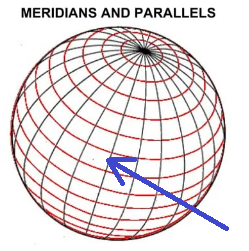-
Posts
5484 -
Joined
-
Days Won
53
Content Type
Profiles
Forums
Events
Everything posted by Genady
-

Restaurant food (split from Heat Regulation - Obesity)
Genady replied to Michael McMahon's topic in The Lounge
(To Say Nothing of the Dog) +1 Me too. Even in translation. -

Restaurant food (split from Heat Regulation - Obesity)
Genady replied to Michael McMahon's topic in The Lounge
A classic example of creativity in cooking: -

Radial ripple from top to bottom of a sphere
Genady replied to Leila Choudhry's topic in Mathematics
If this is the case, then I did not misunderstand the OP, contrary to my previous post. -
I bet on lazy journalism + lazy authors + lazy journal editors.
-
The next paragraph in the article says, 1. What does "extraterrestrial or terrestrial" means? Isn't everything in the universe "extraterrestrial or terrestrial"? 2. It appears to come from the authors of the research rather than from the journalist.
-

Radial ripple from top to bottom of a sphere
Genady replied to Leila Choudhry's topic in Mathematics
Perhaps I misunderstood the process described in OP. I thought that it is about a function, t -> {x,y,z | z=t, x2+y2+z2=1} for a sphere of radius 1 and t in [-1,+1]. -

Radial ripple from top to bottom of a sphere
Genady replied to Leila Choudhry's topic in Mathematics
Then computer graphics and animation people could know. -

Radial ripple from top to bottom of a sphere
Genady replied to Leila Choudhry's topic in Mathematics
Maybe because it is not a commonly referred to thing? Where would you apply this term? -

Restaurant food (split from Heat Regulation - Obesity)
Genady replied to Michael McMahon's topic in The Lounge
In the world of defense mechanisms, rationalization is fairly common. People may not realize when they offer a small excuse or justification. Although this is natural, confronting reality, even when it’s difficult, can be an important step to changing harmful habits in realms such as relationships, finances, and more. -
"Tired light" is not due to a gravitational effect. All gravitational effects on light from the dynamics of homogenous isotropic distribution of mass and energy are already accounted for in the cosmological redshift.
-

Radial ripple from top to bottom of a sphere
Genady replied to Leila Choudhry's topic in Mathematics
The blue line here is a meridian. It connects the North Pole with the South Pole. What do you mean for it to be sweeping southward? -
We are talking mathematics here. If you set c=v on line 5, you divide by 0 on line 6, and everything after that is meaningless. If you don't set c=v on line 5, then there is no c+c on line 6, and everything after that is wrong. You can decide, if you have it done or you haven't. The derivation is wrong anyway.
-
I've asked a mathematician and he wanted to clarify, if this is what you are saying: 1. M = m0 / √(1 - v^2/c^2) = 2. = m0 / √(c^2 - v^2)/c^2 = 3. = m0 / √(c + v)√(c - v)/c^2 = 4. = m0c / √(c + v)√(c - v) = 5. = √(c + c)√(c - v) = 6. = m0c / √(c + c)√(c - v) = 7. = m0c / √2c√(c - v) = 8. = m0√c / √2√(c - v) = 9. = m0√c / √2√n ?
-
The equation is: v=sqrt(c2-m2c6/E2) Set E to any value in this equation and get v<c. No infinities anywhere! All values are finite! I do not "keep the value of infinity" at all, because it is not there! I don't need to "transform" anything "into a finite value", because all values are already finite!
-
Not true! I did not "refute that a particle can reach the speed of light by assuming that it cannot attain infinite mass/energy." This was what you keep saying, and I keep saying that this is wrong. Let me repeat again: I refute that a particle can reach the speed of light because any amount of energy can only accelerate it to a speed less than speed of light. Do you see a word "infinity" in what I say?




